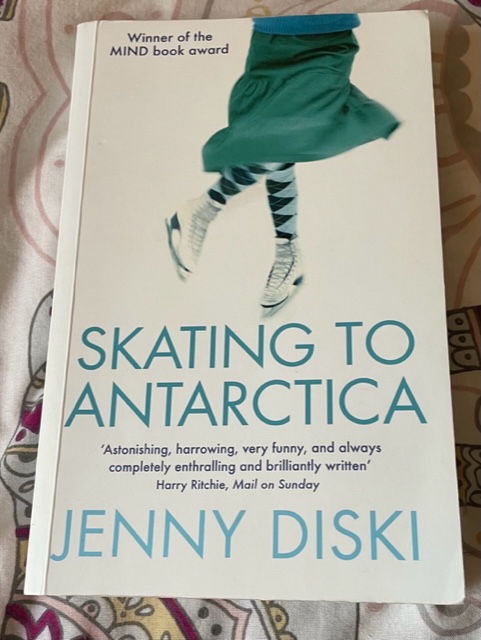
This book is an unusual little gem. I discovered it while listening to the author Katherine May on The Shift with Sam Baker podcast. I love Katherine’s writing and so I take her recommendations very seriously. I must admit I was not previously aware of Jenny Diski and so I went in to this completely blind. It is part travelogue, part memoir. I adore travelogues so I was hooked from the beginning. It is not however your typical travelogue, if there is such a thing. It follows Diski’s trip to Antarctica as well as delving into her past and traumatic childhood. Some of the details of her life are harrowing yet the author still manages to remain funny and witty while discussing complex and difficult topics. It’s as if she takes you to the edge of the trauma but never too far in. Her skill as a writer is that she knows exactly the point at which the reader needs a break and she can shift almost instantly without it seeming clunky or too abrupt. Her keen observations are always enthralling and insightful to read.
Diski really drew me into the landscape of Antarctica, making it feel magical and other worldly. Her descriptions of the environment around her and the animals that occupy it are truly engrossing. It made me want to read more about this wondrous place and it’s inhabitants. Her descriptions of her fellow travellers are not always as kind but often hilarious. This book was written back in 1997 and the absence of social media or smart phones is really striking. Ironically Diski is already commenting on how removed from real life experience passengers are just from taking pictures with their cameras. I kept thinking as I was reading, if you only knew what’s to come. With the exception of this observation the story feels very fresh and as relevant today as it was over twenty years ago.
In some ways this book is the work of a detective. Her daughter, who is trying to find out the whereabouts of her estranged grandmother, Diski’s mother and then Diski herself are all seeking something throughout the book. Diski instructs the help of her former neighbours to learn more about her parents relationship and the parts of her childhood that she has forgotten or were not known to her. Although handled with precision, this investigation uncovers intimate and upsetting details that will make the reader re-think the idea of family and memory. I found her thoughts on depression and mental health very insightful and down right stunning at times. She has a very direct, unsentimental approach to her writing.
“No one can sit through a depression for you and no one can write a book for you. Why not? yells the child. Because then you wouldn’t have done it. So what? screams the child, stamping her foot.”
The transitions between her Antarctic adventure and look back at her childhood are seamless. Diski’s style of writing is absolutely beautiful. Her command of the English language is at times breathtaking. I found myself underlining certain words, turning them over and savouring them as I read. I also loved her approach to what some of us would call the heroes journey. She does not need to accomplish or complete anything on her trip in order for it to be worthwhile. She doesn’t even need to leave her cabin on the ship on some occasions. It’s as if making the trip is enough in itself. Her cabin is her sanctuary and that is good enough. Author Katherine May describes it as an anti-accomplishment book that is quite subversive and challenges the more traditionally masculine idea of completing the journey in a triumphant way. That is one of my favourite aspects of the book, the notion that she travelled all the way to Antarctica and was completely unapologetic about her lack of interest in exploring her surroundings. She did what she had come to do and had nothing more to prove. She has no desire to deliver a neatly packaged ending that would perhaps satisfy the reader more. Her contained cabin, floating along on the water had everything she needed. This refers back to the beginning of the book where Diski discusses her search for white space. “What I really wanted: a place of safety, a white oblivion.” This search for blankness is a theme throughout the book and she describes it with dazzling beauty. I couldn’t possibly do it justice here but it is really stunning.
At the start the reader might think they are about to accompany Diski on an exciting adventure to Antarctica and they are but actually we are her companion on an even more compelling inward exploration of her past and difficult childhood. The location and external surroundings of Antarctica merely serve as a metaphor of her own isolation and descent into depression and mental illness at a young age. This was my first Jenny Diski book but it won’t be my last. I have my eye on “Stranger On A Train” next. This is another travelogue that follows the authors trip across America. I am already packing my suitcase for the next adventure.